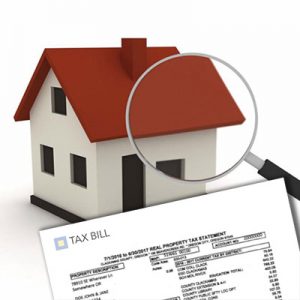Personal and Commercial Property Reassessments – What You Need to Know
April 14, 2022The owners of residential and commercial properties throughout Laurens County will be receiving reassessment notices in the mail soon. Changes in assessed values can affect how much landowners pay in annual property taxes.
South Carolina counties reassess the taxable values of property every five years. Laurens County’s 2020 reassessment was delayed by one year because of the coronavirus pandemic.
The notices will list the assessed values for properties as of Dec. 31, 2020. The deadline for appeals is printed on the reassessment notice. Property owners have until that date to file appeals contesting changes in their land’s assessed value.
Frequently Asked Questions Regarding Reassessment Notices
What do I need to do when I receive my reassessment notice?
The reassessment notice is for informational purposes only. In most cases, no action is required by the taxpayer.
If you do not agree with your property valuation notice, or if you think that the value of your property is incorrect or it is misclassified, you may appeal. Please follow the instructions at the bottom of the reassessment notice to submit an appeal. Instructions can also be found on the Assessor’s website. Objections to value must be made in writing, and will not be accepted by email, fax or other electronic means. You must submit your appeal prior to the deadline shown on your reassessment notice. Postmarks are used to determine if a deadline was met.
Is the reassessment notice a tax bill?
No, the reassessment notice is not a bill, nor is it reflective of the amount of your future taxes.
Why has my property been reappraised?
Title 12-43-217 of the South Carolina Code of Laws states:
- “Once every fifth year each county or the State shall appraise and equalize those properties under its jurisdiction. Property valuation must be complete at the end of December of the fourth year and the county or State shall notify every taxpayer of any change in value or classification if the change is one thousand dollars or more. In the fifth year, the county or State shall implement the program and assess all property on the newly appraised values.”
The goal of reassessment is to distribute the overall tax burden throughout the County in a way that is fair to each taxpayer.
Why is the previous owner’s name showing on my reassessment notice, along with my name?
When a property is sold or transferred, the previous owner’s name remains in our system for the duration of that tax year. This happens strictly for record-keeping purposes and is no way reflective of the current ownership of the property.
How do I know how much my taxes will be in 2022 now that the value has changed?
For tax estimates please reach out to the Auditor’s Office at (864) 984-2535, option 5. Please note: the information provided by the Auditor’s Office is strictly an estimate.
I currently qualify for Homestead Exemption based on my age or qualifying disability. Does this reassessment affect my Homestead Exemption?
No, reassessment does not affect Homestead Exemption qualifications. Reassessment can, however, affect the amount you will owe in taxes. If you are concerned about how reassessment will impact your 2022 tax bill, please call the Auditor’s Office at (864) 984-2535, option 5.
I am a 100% Disabled Veteran, or I otherwise qualify for, the South Carolina Department of Revenue Tax Exemption. Does this reassessment affect my SC-DOR tax exemption?
Reassessment does not affect your SC-DOR tax exemption, nor will it affect your 2022 tax bill.
How can my property value increase when I haven’t made any changes or improvements to my property?
While a property may not have been updated and characteristics remain the same, the property value is based on what it would sell for as of the prescribed appraisal date. Real estate values are influenced by numerous external economic, social, governmental, and physical factors. For example, general economic conditions such as interest rates, inflation rates, supply and demand, changes in tax laws, new highways, and a number of other factors can change and affect the value of property. As property values change in the marketplace, those changes must be reflected on the assessment roll.
How are residential properties assessed?
Residential Properties are valued based on what comparable properties are selling for in the community. The valuation methodology used is known as the “Mass Appraisal” approach, a process by which large groups of properties are valued for ad valorem tax purposes, using statistical models of arms-length sales to arrive at a value as of a given point in time.
Do all assessments or appraisal values change at the same rate?
The 2022 market value for each property is established using sales data from January 1, 2016, thru December 31, 2020. Often percentage increases or decreases in property value are reported in the media, which is confusing to property owners because these figures are generalizations, not representative of a specific neighborhood. What is important is whether the current value is correct and aligned with sales of comparable properties in the market area.













